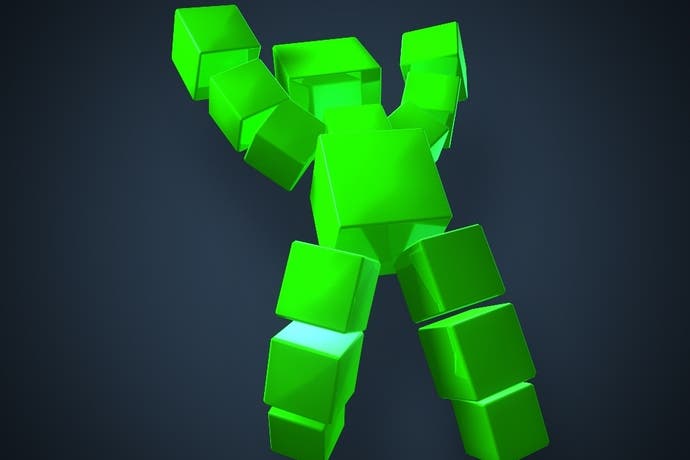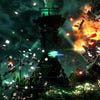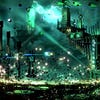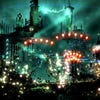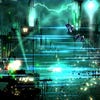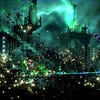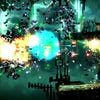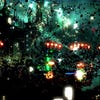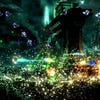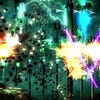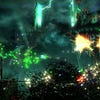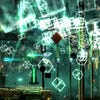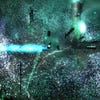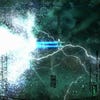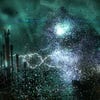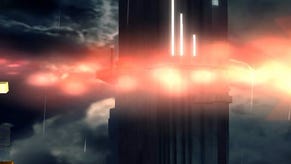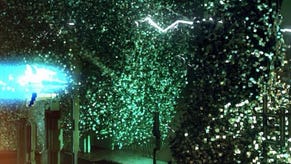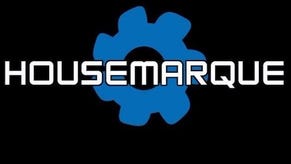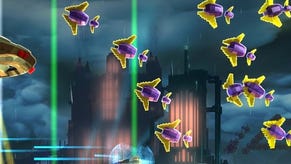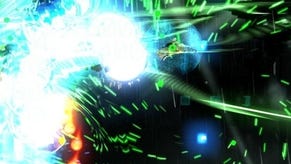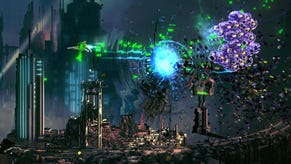What's next for Housemarque?
Reflecting on the success of Resogun, and the Finnish developer's future plans for PlayStation 4.
It's quite possibly not meant to happen this way. A new console arrives accompanied by expensive fireworks and equipped with considerable firepower, and the one game everyone's talking about has its heart set in the corner of an 80s arcade, even if it's been dolled up in sharp voxel threads from an early 90s vision of the future. Resogun's status as the jewel in the PlayStation 4's crown might have been assisted by the less sparkling offerings elsewhere in Sony's first-party line-up, but none of that could detract from the sheer amount of style developer Housemarque had injected into its shooter.
That style has become familiar ever since the Finnish studio helped kick off the PS3's own launch party with Super Stardust HD, another 2D shooter delivered with hyper-kinetic visual frills. If you can think back a little further, it's a style that's likely familiar to anyone who's ever had an interest in the energetic body of work compiled by Eugene Jarvis throughout the 80s. They've served as inspiration for much of Housemarque's output - you can draw a fuzzy line between Robotron and Stardust, and a slightly clearer one between Defender and Resogun, while if you squint a little it's also possible to make a link from the likes of Smash TV and Total Carnage to Dead Nation.
So there's likely a mix of nervousness and giddy excitement bubbling up in the Helsinki office about The Academy of Interactive Arts and Sciences' DICE awards this February, where Resogun is going up against the likes of Battlefield and BioShock in the action category, and where Jarvis will be recognised with the pioneer award. Despite its acknowledged debt to the arcade legend, there's hardly ever been any dialogue between Jarvis and Housemarque.
"Hopefully that's going to change - it's something that we haven't had the opportunity of doing yet," Housemarque's Mikael Haveri tells us over a crisp Skype connection. "The way that our company's gone in the 20 years we've been in existence we've looked up to games like his, and created our take on them. We see ourselves as a tribute, and then we add that Housemarque touch. Him, and many others, paved the way for us. It's going to be amazing to be at the same ceremony."
"When it was on the drawing board, it wasn't specifically aimed at the PlayStation 4. Then there was a transformation, bit by bit, during the process, and through that it became more apparent that we could do these things."
It's been a pretty amazing few months for everyone at Housemarque, all told, as it's found itself at the forefront of the Sony's next generation push - although that wasn't necessarily always Resogun's fate. "When it was on the drawing board, it wasn't specifically aimed at the PlayStation 4," Haveri reveals. "Then there was a transformation, bit by bit, during the process, and through that it became more apparent that we could do these things. Some of those factors that we weren't sure whether we could bring into the game, it became apparent we could do them [on the PlayStation 4]. There were a lot of opportunities, and it was really cool to see that instead of cutting features we could actually add them."
The platform may not have been nailed down from the off, but the idea very much was. It started with a desire to play with voxels - something the final product does with abundant glee - as well as a way to take forward the genre work that Housemarque had explored with the Stardust series. "Having done Stardust, it felt in the same vein so we were comfortable enough, but it was new enough to make us feel on edge," says Haveri. "We were happy with the voxels. They've been good to us."
Sony's been good to them too, of course, and Resogun's the continuation of a relationship that spawned with Super Stardust HD - itself a return to a series the studio had started in the early 90s on the Amiga when it was still known as Bloodhouse. Housemarque remains independent, but it's become entrenched within the philosophies and benefits that come with working alongside the house of PlayStation. "It seems to be a nice relationship. It's one of these things that we've grown very comfortable with Sony platforms, and the support we have with the XDEV teams. If we were fully independent, it'd be taking a lot of resources away from us, so there's a nice symbiosis to be had."
The benefits to Sony are clear enough - in Resogun it had a robust offering at the time of the PS4's launch - and to Housemarque they're intangible. Offered up for free as part of the PlayStation Plus subscription service, the game's as good as a pack-in for the PS4, available to anyone with an internet connection and a slither of common sense. It's a slice of good fortune that Haveri, and Housemarque, are doubtless grateful for. "The prominence and the visibility we gain through this relationship is unparalleled - for a game in this genre without this publicity... I couldn't see an equation to rival this."
PlayStation Plus has helped Resogun onto PlayStation 4 consoles, but it's the innate quality that's helped it stay there - and much like Geometry Wars at the time of the Xbox 360's launch, the timeless allure of leaderboard competition has eclipsed much showier games. It comes at a time, too, when there's an increased appetite for purer, more off-beat thrills. "I think the whole outlook on different genres, the indie scene - whatever that might be defined as - is doing really well," says Haveri. "Smaller games are getting bigger communities and publicity. It's sort of a mindset change that maybe wasn't there during the launch of previous generations. It's working out well for us and companies like us. People are more open to these experiences."
So what's next for Housemarque? For Resogun, the plans have been set, even if they're not quite ready for reveal. There's DLC on the way later in the year, although a much requested Vita version isn't necessarily such a certainty. "Remote Play's doing really well, and I'm happy with how that's been implemented. If we were to port the game to Vita, and other platforms like PS3, right now we'd have to implement some limitations in the technology of the game. We haven't got an official stance on that, but it wouldn't be the same Resogun on other platforms."
"The prominence and the visibility we gain through this relationship is unparalleled - for a game in this genre without this publicity... I couldn't see an equation to rival this."
Beyond that, there's another PlayStation 4 game in the works, and one whose identity is hardly a secret. "We did announce it fairly early on last year," Haveri says. "We haven't spoken about it too prominently. But we've had these games in development for quite some while. It's not like a one game deal or a two game deal [with Sony] - it's more part of an ongoing relationship."
Haveri himself all but revealed what exactly Housemarque's working on next for PlayStation 4 last September, and its reveal likely isn't too far off. So, without going into specifics, what could a follow-up to Housemarque's top-down shooter Dead Nation look like on Sony's new platform? "Talking from the tech standpoint, PlayStation 4 is the supreme platform for us, and a lot of developers. I think of course that the surface has just been scratched, and there's a lot of opportunity there.
"But we're a tech-centric company, and there are a lot of technological things that we can explore that haven't been available before. Even stuff on high-end PCs, you have to scrap some of it because you know only 5 per cent of people with PCs can play them. Going to something like the voxel tech in Resogun - you can go very different routes, and now that you know that there are a few million PS4s out there you really know that all these players can enjoy that same level of modern tech so we're keeping that in mind. We intend to deliver in different ways on the tech that's out there."
